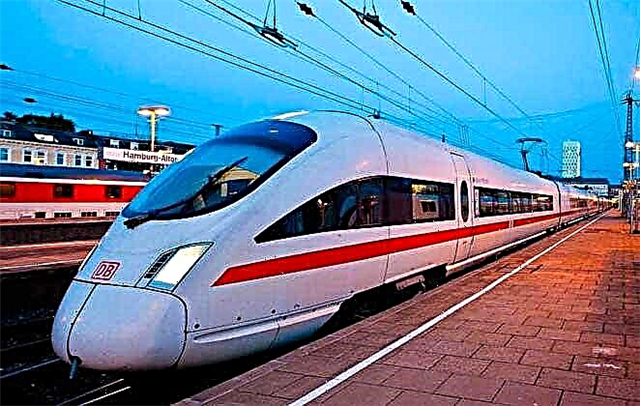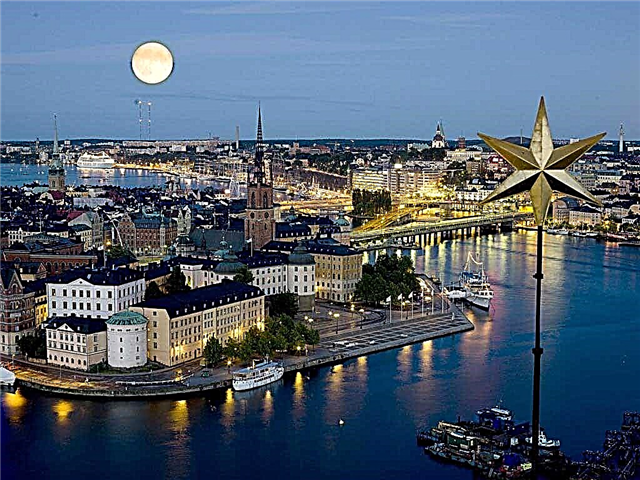Due to the common Soviet past, the similarity of mentality and language, Bulgaria is considered one of the most comfortable states for citizens of the Russian Federation (RF) to live in. Favorable climatic conditions and a large number of attractions have turned this country into a popular center for modern tourism. But before you go on vacation or permanent residence (permanent residence), it does not hurt to learn more about the standard of living in Bulgaria.

What conditions do Bulgarians live in?
The standard of living consists of a set of conditions and indicators that characterize the degree of satisfaction of the basic vital (spiritual and material) needs of people. The standard of living is judged on the basis of various factors, including the income of the population of the country, the number of unemployed, the size of the pension, the quality of medicine and social security, the level of development of the education system. Consider how ordinary people live in Bulgaria, what benefits and privileges they enjoy.
Wage
The minimum wage is set at the government level. In 2021, this amount was 510 leva / 260 euros per month. Thus, the official annual income of a person whose work is paid according to this tariff is 6,120 levs / 3,130 euros. In 2021, it is envisaged to increase the minimum wage in Bulgaria to 560 levs / 286 euros per month.
According to the National Statistical Institute of Bulgaria, the average salary in the country before taxes in 2021 varied between 1,077 leva / 550 euros per month. After deducting taxes, the employee had about 835 levs / 425 euros left in his hands. In public institutions, the average salary is 1 094 levs / 560 euros, in private companies - about 1,072 levs / 550 euros.
Anyone who lives in Bulgaria and is employed in the field of information technology has the opportunity to receive one of the highest salaries in the country. The monthly income of an employee in the IT industry in 2021 was equal to 2,584 levs / 1,321 euros.
Social benefits
On January 1, 2021, the Bulgarian government increased the minimum unemployment benefit to 9 levs per day (instead of 7.2 levs). The maximum payments to non-working people are 74.29 leva per day. According to representatives of the National Insurance Institute, in 2021, these amounts will remain unchanged.
The actual question is whether there are any benefits and privileges for mothers that make life easier with children in Bulgaria. So, at the beginning of 2021, the amount of the allowance for raising a young child increased to 380 levs (up to this point, the amount of payments was 340 levs). There are no plans to increase this benefit in 2021.
The state also provides a minimum pension to its citizens, the amount of which in the second half of 2021 is 207 levs, and in 2021 it should be increased to 219 levs.
The government has established additional payments for those pensioners whose benefits are below the subsistence level. Also, war veterans and persons with disabilities receive a supplement (110 leva) to their pension.
Health and longevity
Treatment in Bulgaria is mostly paid. Citizens of the country are required to make monthly contributions to the National Health Committee. Their size is small - about 10 leva. If a person works, this amount is calculated from wages.
Medications are mainly dispensed with a doctor's prescription. Their prices are controlled by the government.
Immigrants who came to the country for permanent residence have the right to use the services of family / personal doctors.
The average life expectancy in Bulgaria is 74.8 years. Men live about 71.3 years and women about 78.4 years. In rural areas, life expectancy is on average 72.8 years, and in cities - 75.6 years.
How expensive is it to live in Bulgaria
According to the Institute for Social Research and the Confederation of Independent Trade Unions, in 2021 the minimum subsistence level in the country was 321 Bulgarian lev / 164 euros, and the average monthly expenditure in Bulgaria (taking into account the prices of food, utilities, consumer goods, medicine and education ) - 585 levs / 299 euros per person.

Let's try to find out what pricing policy is in effect in the state for certain categories of goods and services.
Housing cost and utility bills
Renting an apartment in Bulgaria is expensive only in summer, during the resort period. It is one of the main seasonal sources of income for local developers, as well as foreigners who have invested in Bulgarian real estate. With the arrival of autumn, house prices are falling.
Answering the question about whether it is expensive to live in Bulgaria, it should be noted that for a rented two-room apartment in the center of Sofia you will have to pay about 862 levs / 440 euros, and in residential areas - 627 levs / 320 euros per month. For example, in Varna, housing of the same type costs 588 levs / 300 euros per month in the center, 411 levs / 210 euros per month in residential areas.
Monthly utility bills (gas and water supply, electricity, garbage collection) are on average:
- 92 levs / 47 euros - for a one-room apartment;
- 133 levs / 68 euros - for a two-room apartment;
- 166 levs / 85 euros - for a three-room apartment.
But buying real estate in Bulgaria is much easier than, say, in Russia. According to the settlers, here you can buy a comfortable house on the seashore for only 20,000 euros (which is equivalent to 1,495,238 rubles).
How much does food cost
It is important to bear in mind that the cost of certain goods directly depends on the region. In tourist centers, everything is more expensive than in peripheral settlements.
So, when determining how much you can live in Bulgaria for a month, you should take into account that the average cost of food in supermarkets is approximately the following:
- bread - 1.7 leva / 0.91 euros;
- potatoes (1 kg) - about 1.9 leva / 1 euro;
- onions (1 kg) - 0.45 leva / 0.23 euros;
- vegetable oil (1 l) - 1.9 leva / 1 euro;
- sugar (1 kg) - 1.2 leva / 0.6 euros;
- eggs (10 pieces) - 1.9 leva / 1 euro;
- chicken (1 kg) - 4.9 leva / 2.5 euros;
- pork (1 kg) - 7.8 levs / 4 euros;
- trout (1 kg) - 9.8 levs / 5 euros.
Since Bulgaria is a country whose economy is dominated by the agrarian sector, food prices are much lower here than in the rest of the EU. Many commodity items are even cheaper than in Russia.
Public transport fares
Public transport in Bulgaria is the cheapest way to get around the country. For example, to travel around the city in a taxi for a distance of 5 km, you need to pay about 4.9 leva / 2.5 euros. In resort towns, taxi rates are 20-30% higher. Renting a small budget car costs an average of 29 to 49 leva (15 to 25 euros) per day.
An electric ticket costs 1.6 levs / 0.82 euros). A day pass can be purchased for BGN 4.
Thus, each traveler can make a conclusion for himself as to whether it is good to live in Bulgaria by comparing the prices for various goods and services with the prices that are valid in his home country.
Peculiarities of the Bulgarian mentality and attitude towards foreigners
In general, Bulgarians are quite friendly and decent people. There is no hatred or contempt for immigrants. Although, in order to integrate into the national environment, citizens of other countries need at least:
- get acquainted with the peculiarities of the local mentality;
- demonstrate their worth;
- learn Bulgarian;
- show your skills, skills, potential.
As for the relationship of Bulgarians with Russian settlers, memories of the former common traditions and the Soviet past are being erased over the years.Therefore, contacts between representatives of the younger generation are being established according to the same principle as with representatives of other states, and not on the basis of the memory of the long-standing friendship of peoples.

Living in Bulgaria for Russian pensioners is somewhat easier in the sense that they, unlike young people, do not need to prove their prospects and solvency. The main thing is that there are personal funds to ensure life in a new place.
Emigrants from Russia in Bulgaria
According to data provided by the country's National Statistical Institute, Russians in Bulgaria constitute the third largest national-ethnic minority. According to official estimates, about 25,000 people from the Russian Federation live here. Most of them are concentrated in cities such as:
- Burgas;
- Varna;
- Sofia;
- Plovdiv.
The Russian Old Believer community is still functioning on the territory of Bulgaria. Also, emigrants from Russia became the founders of their own public organization, which is known as the Union of Compatriots.
Answering the question about how Russians live in Bulgaria, it should be said that representatives of different age categories find their place in various spheres of activity. Thus, pensioners in most cases give preference to farming in rural areas, making souvenirs, clothing, and household items. Young people and middle-aged people with higher education and work experience often go abroad to open a private business - it is easier to open a company in Bulgaria than in the Russian Federation.
Which Bulgarian city to settle in
It is impossible to give an unequivocal answer where it is better to live in Bulgaria, since everything depends on the goals and needs of the person who decides to emigrate. For example, if you want to settle in a recreational area in order to improve your health, you should give preference to cities such as Varna, Burgas.
Sofia, Plovdiv is chosen by those who are going to study on their own or provide higher education for their children and grandchildren. These are also the best cities in Bulgaria for foreigners planning to do business.
The best option for elderly people is to move to small villages and towns far from the center. Life here is calm and measured.
But for young people this is not the best option: in rural and suburban areas, they will encounter problems with employment and earnings.
Summing up
Summarizing the above, we will list the pros and cons of living in Bulgaria. So, the advantages include:
- favorable climate and beautiful nature;
- lower than in the rest of the European Union, prices for goods and services;
- low cost of real estate;
- low tax rates and government assistance to private business development;
- low crime rate;
- proximity to the EU.
Among the shortcomings, it is necessary to highlight:
- mostly paid medical services;
- the inability to travel to the Schengen countries without a Schengen visa;
- problems with employment in villages and suburbs;
- one of the lowest income levels in Europe.
Therefore, when going for permanent residence in Bulgaria, you need to weigh the pros and cons, assess your capabilities and prospects, and then make a final decision.











